So, it happened...
How a historic global agreement on climate was reached
Paris, 14 December 2015 | Energy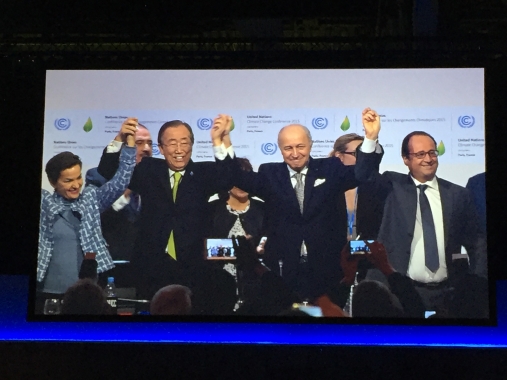
Magnus Ulaner* reports from the Climate negotiations taking place in Paris during the COP21.
Nearly 24 hours after the official ending of the two week-long 21th Conference of the Parties (COP21) to the Convention on Climate Change, French minister of foreign affairs, Laurent Fabius, could swing the gavel. Relief and jubilation spontaneously broke out.
In 2011, in Durban, South Africa it was decided that in 2015 a global climate agreement was to be achived. This agreement is the finish line of a 4-year process and the begining of a journey towards a low-carbon future.
The historic element may be traced in the fact that countries multilaterally agree on a common infrastructure to handle one of the greatest challenges mankind has ever faced – global warming. This sends the signal to the global economy that decarbonisation starts today. At the same time the agreement is weak on clear mitigation targets needed.
Here is a summary and short comments on the cornerstones of the agreement:
- Temperature goal: the agreement aims holding the increase in the global average temperature to ”well below 2 °C” and to” pursue efforts to limit the temperature increase to 1.5 °C”. This language reflects an increased awareness of the vulnerability many nations now feel and not many would beforehand think that 1.5 °C would be in the agreement.
- Long-term goal: "to achieve the long-term temperature goal Parties aim to reach global peaking of greenhouse gas emissions as soon as possible”. No baseline year, end year or procentage is specified and the agreement recognizes that ”peaking will take longer” for developing countries than for developed countries. This emission reduction is strikingly weak and vague. There is no consistency between the lon-term goal and the temperature goal.
- The Intended Nationally Determined Contributions - received by the UN in advance of CO21 fall short of the 2 °C temperature goal. The estimates suggest these ambitions will lead global temperatures to rise at least 2.7°C above pre-industrial. To deal with this, each country shall prepare ”nationally determined contributions that it intends to achieve” and undertake a ”global stocktake in 2023 and every five years thereafter”; the so-called "ratchet mechanism". This is a good review process put in place.
- Adaptation to a changing climate is a strong need in many of the least developed and small island nations. Adaptation is stregthened in the agreement and countries ”should strengthen their cooperation on enhancing action on adaptation” and developing countries is to be assisted adaptation.
- Loss & Damage: developing countries will receive support for any damages and losses, climate change causes them, with reference to the so-called Warsaw mechanism. It is unclear how the legal practice will be exercized. This will be further negotiated.
- Financing climate mitigation and adaptation: developed countries ”shall provide financial resources to assist developing countries” and mobilize ”climate finance from a wide variety of sources”. No specific summs are mentioned in the agreement, but the $100 billion/year as of 2020 decided to come from developed countries is mentioned in the decicion of the meeting. I think it is weak not to keep it in the agreement, and the sum is not enormous. Faith Birol, IEA, at a side-event in Paris, presented the volume of yearly subsides for fossil fuel at approximately $500billion/year. So, there are resources but they are not well spent.
- Market mechanism: it is recognized that countries can ”pursue volontary cooperation” in order to jointly achieve the Nationally Determined Contributions and ”robust accounting” should be used to avoid ”double counting”.
- Transparency: each country shall ”provide a national inventory report of anthropogenic emissions” and ”information necessary to track progress made in implementing and achieving its nationally determined contribution” I think that it is extrodinary that both China and USA agreed on this.
I want to conclude with a citation from George Monbiot in the Guardian, who captures my feeling regarding the outcome: ”By comparison to what it could have been, it’s a miracle. By comparison to what it should have been, it’s a disaster.”


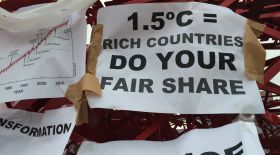


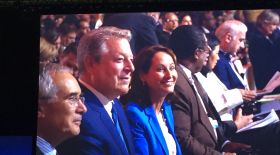
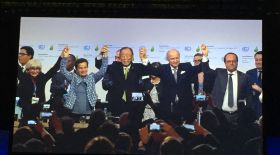
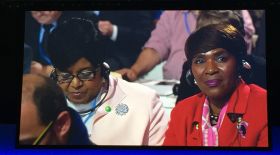
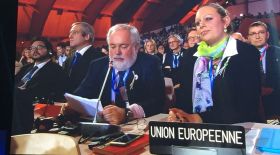
Leave comments